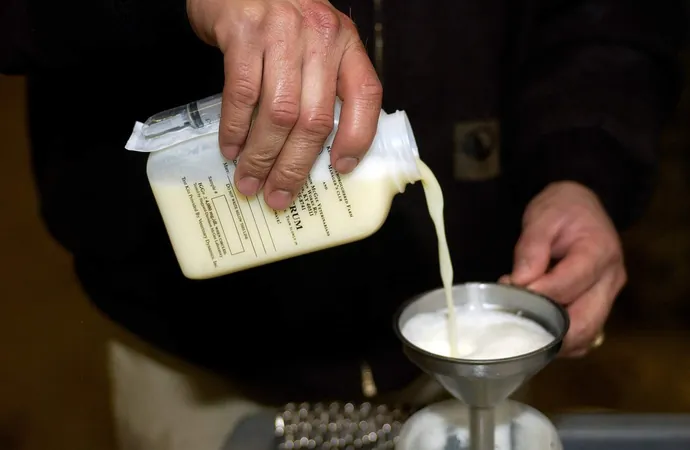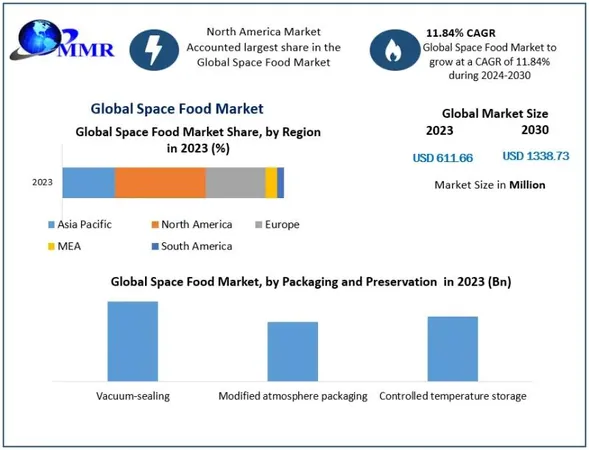
The Crucial Role of Mare Colostrum in Foal Health: What You Need to Know!
2025-04-18
Author: Ming
Why Colostrum Matters for Newborn Foals
When a foal is born, its health hinges on one vital substance: colostrum, the first milk produced by the mare. This thick, golden liquid is packed with antibodies that shield the fragile newborn from disease. For optimal immunity, it's critical that foals consume colostrum within their first 24 hours, as this is the window during which they can effectively absorb these protective antibodies.
The Risks of Low-Quality Colostrum
However, what happens when a mare's colostrum is subpar? If foals don't get enough or can't absorb the necessary antibodies, they face a higher risk of a condition known as Failure of Passive Transfer Immunity (FTPI). This alarming situation can leave foals susceptible to serious illnesses and even threaten their survival.
Groundbreaking Research from the University of Glasgow
A recent study conducted at the University of Glasgow has shed light on the intriguing relationship between mare colostrum quality and foal health. Led by researchers Kirsty Gallacher and Katherine Champion, the study analyzed the levels of Immunoglobulin G (IgG) in foals and how these levels correlate with their weight and overall health.
Key Findings on Weight, IgG Levels, and Colostrum Quality
In a comprehensive examination involving 535 Thoroughbred foals, researchers closely monitored their serum IgG concentrations and weight from birth to 130 days old. They also analyzed colostrum samples from 177 mares. The results indicated a moderate correlation between the colostrum's IgG levels and the foals’ serum IgG concentrations. However, remarkably, foal weight gain didn’t show a significant linkage with serum IgG levels.
Interestingly, while the sex of the foal didn't affect IgG concentrations, researchers discovered that an increase in birth weight corresponded with slightly higher IgG levels. Alarmingly, foals in the heavier birth weight categories often had lower concentrations, prompting concerns among veterinarians about the health of these larger foals.
The Impact of Birth Timing and Mare Age
The research unveiled that foals born later in the year generally had lower colostrum quality and gained less weight than their earlier-born counterparts. Additionally, younger mares produced colostrum with higher IgG concentrations. For every percent increase in colostrum quality (Brix %), researchers noted a significant rise in the foals’ IgG levels. Astonishingly, out of 112 low-quality colostrum samples, 89 resulted in foals showing FTPI, emphasizing the urgent need for timely high-quality colostrum supplementation.
What Does This Mean for Breeders and Veterinarians?
The findings of this study carry essential implications for breeding practices. As large foals may need a greater volume of high-quality colostrum immediately after birth, breeders and veterinarians must act swiftly to ensure these newborns receive proper nutrition to bolster their immune systems. The study advocates for proactive colostrum management to mitigate health risks for foals.
Final Thoughts
Published in the Equine Veterinary Journal, this eye-opening research highlights the undeniable link between the quality of mare colostrum and foal immunity. Understanding these relationships could be the key to enhancing foal health and survival rates in the equine world.




 Brasil (PT)
Brasil (PT)
 Canada (EN)
Canada (EN)
 Chile (ES)
Chile (ES)
 Česko (CS)
Česko (CS)
 대한민국 (KO)
대한민국 (KO)
 España (ES)
España (ES)
 France (FR)
France (FR)
 Hong Kong (EN)
Hong Kong (EN)
 Italia (IT)
Italia (IT)
 日本 (JA)
日本 (JA)
 Magyarország (HU)
Magyarország (HU)
 Norge (NO)
Norge (NO)
 Polska (PL)
Polska (PL)
 Schweiz (DE)
Schweiz (DE)
 Singapore (EN)
Singapore (EN)
 Sverige (SV)
Sverige (SV)
 Suomi (FI)
Suomi (FI)
 Türkiye (TR)
Türkiye (TR)
 الإمارات العربية المتحدة (AR)
الإمارات العربية المتحدة (AR)